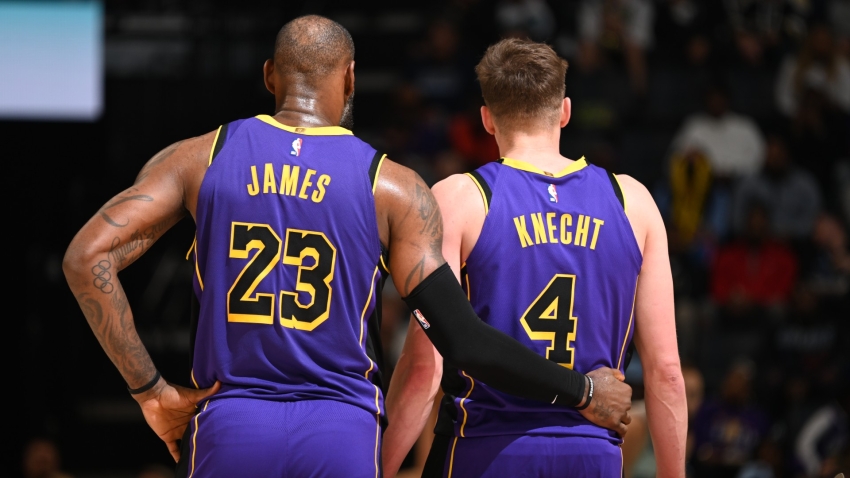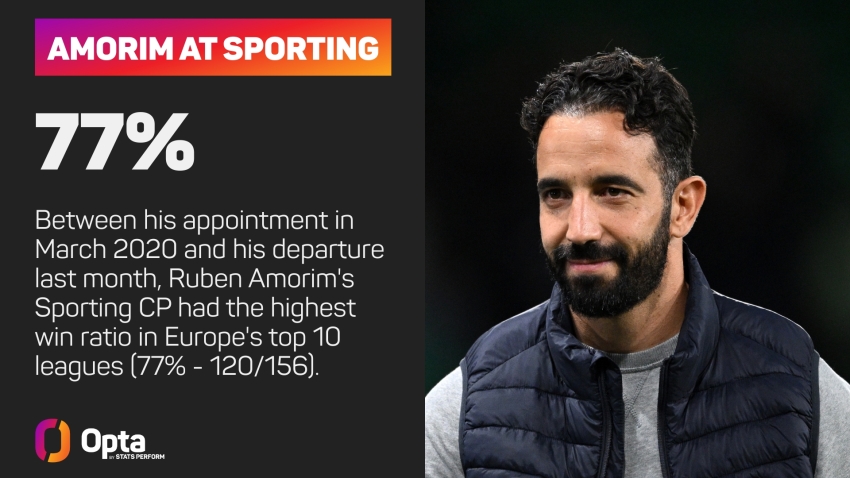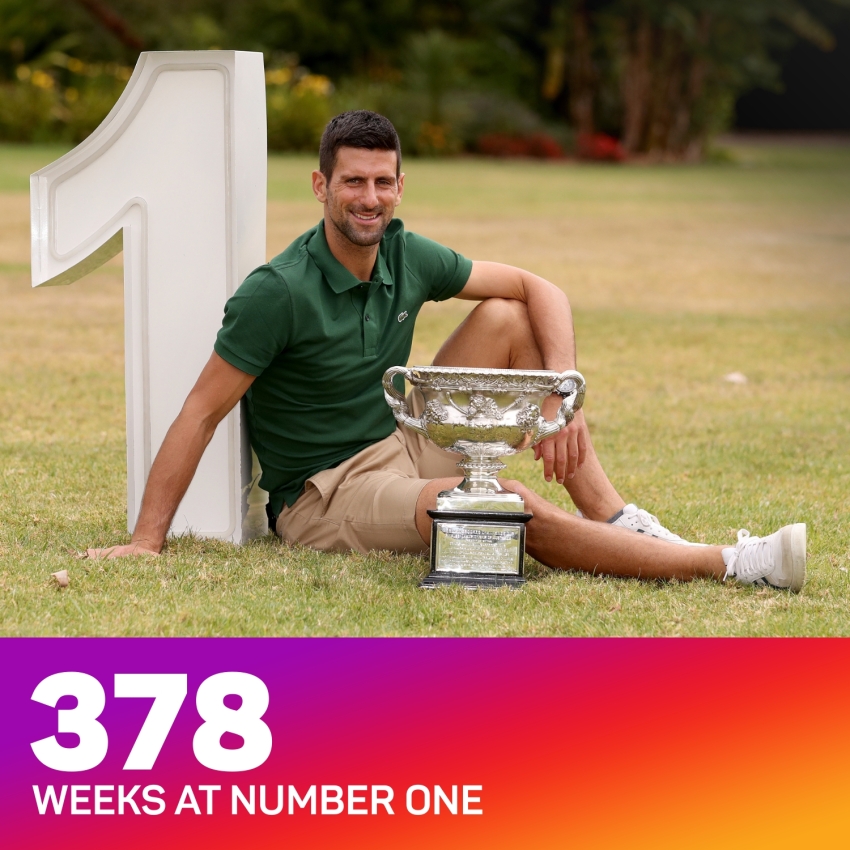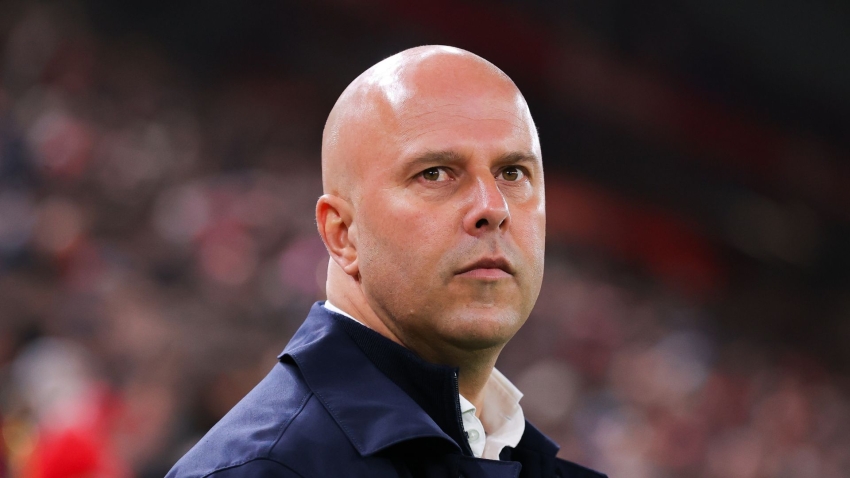Novak Djokovic is amassing such a dossier of evidence that no sober judge would dispute his claims, but debate still rages as to who is the greatest men's tennis player of all time.
The 35-year-old has now racked up 378 weeks at number one on the singles rankings, not only improving his record among the men but also this week going past Steffi Graf, the leader on the women's tour.
Djokovic has won 10 of the last 16 grand slams he has contested, all since turning 30, and has moved level with Rafael Nadal on 22 singles majors, the most ever captured by a man.
His stockpiling of Masters 1000 titles is bordering on being greedy, with a record 38 tucked away, and although he turns 36 in May there is no sign of Djokovic slowing down.
Tommy Haas snatched three wins from nine encounters with Djokovic, while the Serbian was going up through the gears early in his career.
Haas told Stats Perform he sees Djokovic as a player who wants to "end that debate" over who is the greatest, but there are good grounds to reason the man from Belgrade has already done enough.
Djokovic's compelling case
With plenty of miles left in his legs, Djokovic has already reached 33 grand slam finals (W22 L11), the most by any man. It puts him level with Serena Williams (W23 L10) and one behind Chris Evert (W18 L16), who is perhaps a surprising leader in this field.
Given his form in the past 12 months, it would be astonishing if Djokovic does not reach more slam finals this year.
He has also won 38 Masters titles – the next rung down from the grand slams – and is not just the only singles player to have won every one of these nine tournaments, he has won each one at least twice.
Djokovic's six end-of-season ATP Finals titles puts him level with Federer.
Adding together grand slams, ATP Finals crowns and Masters 1000 wins, Djokovic has 66 of these so-called 'Big Titles', seven more than Nadal, who sits second on the list. It bears pointing out the Masters events only began in 1990, so this puts players of the modern era at an advantage, but the domination of these events by the likes of Djokovic, Nadal and Federer mirrors their unprecedented grand slam supremacy.
Djokovic has an 83.5 per cent career win-loss record (W 1,043, L 206), the best of all players with at least 200 matches on tour during the Open Era (since 1968).
In the slams, his win-loss record of 341-47 gives Djokovic an 87.9 per cent winning record, just a shade behind Nadal's 88 per cent, and ahead of Federer (86 per cent).
Djokovic is rapidly closing in on overtaking Nadal's win percentage, having powered through his last 14 matches at the majors, triumphing at Wimbledon and the Australian Open.
These winning percentages at the slams by the Big Three are not the absolute highest of all time, but considering Djokovic, Nadal and Federer have regularly had to play one another over the past two decades, that is easily explained.
Only Bjorn Borg (71.1 per cent) has a higher win percentage against top-10 players than Djokovic's 69.4 per cent, but Borg's career was relatively brief, stepping off the tour in his mid-20s, with Djokovic a model of sustained excellence.
Djokovic is playing in Dubai this week, seeking more trophy success.
The expert's view
"He's the ultimate competitive warrior out there," says Tommy Haas. "He doesn't leave a stone unturned, does everything that he possibly can to be the best that he can be."
Haas is now tournament director at the Indian Wells Masters – aka the BNP Paribas Open – and he had better results than most against Djokovic, scoring wins on grass in Halle and Wimbledon in 2009 before repeating the trick on hard court in Miami four years later.
Djokovic, it can be argued, is a better player at 35 than he was at 25, and he is certainly more dominant. The man who feeds off his inner "wolf energy" has lost none of his bite.
"He's spoken about it himself many times, the sort of upbringing that he had, the experiences that he had to go through just to put so much grit in him, so much fire and fighting power. And you see it. The guy is an absolute beast out there," Haas said.
"There's no doubt in my mind that in his mind he wants to become the greatest of all time and win the most slams and end that debate and I think that's that's what he's looking to do.
"We're getting a little bit ahead of ourselves now but let's just say he does have the most slams. He's won every Masters series there is, maybe the most of all of them as well. Longest number one, most slams and then I think there is no room to argue."
Is winning enough to define greatness?
Yes. It has to be. In hand-to-hand combat, whether in war or something as relatively frivolous at tennis, it's all about getting the better of the enemy. Then it's about continuing to do so, and if it's easy on the eye, all well and good.
Roger Federer played the most sumptuous tennis that made him a bigger draw than anyone, and the Swiss great was also a sensational winner to boot, and a charmer, but Djokovic is picking off his records one by one.
Does this make Djokovic the most popular tennis player of all time? No, he rarely exhibits the warmth of personality that Federer brought, the crowd-pleasing flourishes are in shorter supply, and he brings some of the bad press and occasional crowd antipathy on himself.
But winning is the priority for Djokovic, and nobody does it better.
Haas says: "Really, can you say does he have the prettiest game or the best shot selection or this and that? Without Roger and without Rafa he would have been pushed to become that good of a player? Maybe not. And you have to always look at every generation pushing each other and all that stuff.
"And the debates can go on and on. Bjorn Borg retired when he was 26 years old, he won 11 slams. What if he would have played 10 more years? Yeah, he probably could have had 20."
But Djokovic has 22 and is hurtling towards Margaret Court's 24 slams, the most by a woman. There is no doubt he believes he can go beyond that, and keep going.
Shingo Kunieda won 28 wheelchair singles majors, and Djokovic might even get up towards that number.
For now, the number that matters is number one. Whether you like him or not, the man they call Nole is hurtling into history as the champion supreme.































